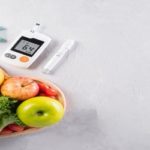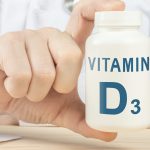Hypertension
Intensive Blood-Pressure Control in Older Patients Lowers Cardiovascular Events
According to a study published in the ‘New England Journal of Medicine’, intensive treatment of high blood pressure in older individuals with a target systolic blood pressure of less than 130 mm Hg, significantly decreased cardiovascular risk when compared to standard treatment.
The study included 8511 hypertensive patients between 60 to 80 years of age who were randomly assigned to the intensive treatment group and standard treatment group to determine appropriate systolic blood pressure target which aids in reducing cardiovascular risk.
The key results were as follows:
- After a 1 year follow-up, the intensive treatment group showed a mean systolic blood pressure of 127.5 mm Hg and the standard treatment group showed 135.3 mm Hg.
- After a median follow up of 3.34 years, lower incidence of cardiovascular events was observed in the intensive treatment group when compared to the standard treatment group.
- Safety profile and renal outcomes showed no significant differences between both the groups.
In conclusion, intensive high blood pressure treatment with a target of less than 130 mm Hg systolic pressure is more effective in lowering the incidence of cardiovascular events, when compared to a standard treatment with a target systolic blood pressure of less than 150 mm Hg.
Weili Z, Shuyuan Z, Yue D, Shoulin W et al. Trial of Intensive Blood-Pressure Control in Older Patients with Hypertension. N Engl J Med (2021); 385(14):1268-1279.

Lifestyle Interventions Reduce Need for Guideline-Directed Antihypertensive Medication
Read More

Suppression of Excessive Seasonal Blood Pressure Changes Contributes to Prevention of Cardiovascular Disease
Read More

Chlorthalidone Monotherapy Has Higher Failure Rates Than Amlodipine Monotherapy
Read More

Acute Moderate-Intensity Exercise can Reduce Resting Blood Pressure in Young Hypertensive Men
Read More

What are the Factors Associated with Hypertension Control Among Treated Middle-Aged Adults?
Read More

Estimating the Time Needed to Potentially Derive Clinical Benefit from Intensive BP Treatment in Patients 60 Years and Older
Read More

Does Beverage Intake During Childhood Determine Risk of Hypertension and Hyperlipidemia During Adulthood?
Read More

Understanding the Burden of Undiagnosed Hypertension and its Associated Factors Among the Adult Population
Read More

Is Hypertension Associated with Lower Antibody Titres and Breakthrough Infection Following COVID-19 Vaccination?
Read More

The Prevalence and Levels of Awareness of Hypertension Among Young Adults
Read More

Is COVID-19-Related Anxiety Associated With Greater Risk of CVD Events?
Read More

Indian Clinicians’ Perspectives on Hypertension in Young Adults
Read More

Finding the Link Between Food Intake Time and Long-Term Survival Among Patients with Diabetes
Read More

Is a FDC of Metoprolol, Telmisartan & Chlorthalidone Efficacious & Safe in the Treatment of Essential HTN?
Read More

Do Hypertension and Hyperlipidemia Synergistically Increase the Risk of Ischemic Stroke?
Read More
The REAL YOUNG Hypertension Study
Read More

Can Fish Oil Supplements Help Reduce the Risk of Cardiovascular Events?
Read More

Prevalence of NSAID Use in Patients with Hypertensive Crisis (HTN-C)
Read More

Does Aspirin Use Increase The Risk Of Heart Failure?
Read More

Can HIIT Workouts Improve Arterial Stiffness?
Read More

Sacubitril–Valsartan Useful In Treating Apparent Resistant Hypertension
Read More

Body-Weight Resistance Exercise Can Reduce BP In Middle-Aged Adults With Hypertension
Read More

Aerobic and Resistance Exercises can Lower Blood Pressure in Older Hypertensive Women
Read More

Improved Sleep efficiency Found to Reduce Blood Pressure
Read More

Vitamin D3 Supplementation in Hypertensive Patients Does Not Lower Systemic Inflammation Markers
Read More
